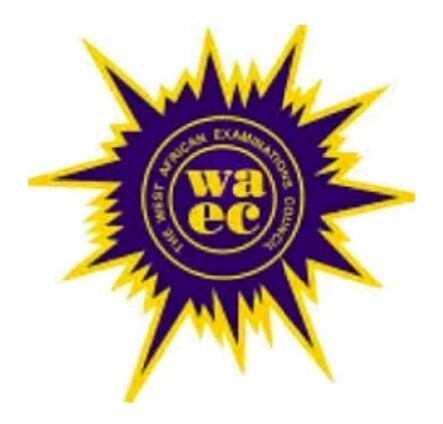Are you a science student preparing for the West African Examination Council (WAEC) Biology exam?
One essential tool you must have is the Biology syllabus. This syllabus serves as a roadmap, providing you with the aims, objectives, and topics to cover for the examination.
In this blog post, we will break down the WAEC Biology syllabus, highlight the exam format, and recommend textbooks to aid your preparation. Let’s dive in!
Understanding the Biology Syllabus:
The WAEC Biology syllabus is divided into three sections: Section A, Section B (for candidates in Ghana), and Section C (for candidates in Nigeria, Sierra Leone, The Gambia, and Liberia).
It is designed to assess your understanding of the structure and functions of living organisms, laboratory skills, scientific principles, and their application in everyday life.
By studying the syllabus, you will have a clear direction on what topics to focus on and how to approach your exam preparation effectively.
Exam Format:
The Biology exam consists of three papers: Paper 1, Paper 2, and Paper 3.
Paper 1: This is a multiple-choice objective paper with 50 questions drawn from Section A of the syllabus. It carries 50 marks and lasts for 50 minutes.
Paper 2: This paper contains six essay questions covering the entire syllabus. It is divided into Section A, Section B (for Ghana), and Section C (for Nigeria, Sierra Leone, The Gambia, and Liberia). Candidates are required to answer two questions from Section A and all the short-structured questions from either Section B or Section C. Section A’s questions carry 20 marks, while the compulsory short-structured questions in Sections B and C carry 30 marks. The total score for Paper 2 is 70 marks, and the duration is 1 hour and 40 minutes.
Paper 3: This is a practical test for school candidates or a test of practical work for private candidates. It consists of Section A, Section B (for Ghana), and Section C (for Nigeria, Sierra Leone, The Gambia, and Liberia). Candidates must answer all questions in Section A and one question from either Section B or C. Paper 3 carries a total score of 80 marks and lasts for 2 hours.
Biology Syllabus Topics:
The Biology syllabus covers a wide range of topics that include:
- Concept of Living: Living and non-living things, classification of living things into kingdoms, and differences between plants and animals.
- Organization of Life: Cell structure and functions, different forms of living cells, and complexity of organization in higher organisms.
- Cell: Cell components, similarities and differences between plant and animal cells, and processes like diffusion, osmosis, and active transport.
- Cellular Respiration: Aerobic and anaerobic respiration, energy release, and its importance in living organisms.
- Excretion: Excretory processes in single-celled organisms, waste products of metabolism, and the role of excretory organs.
- Growth: Basis of growth, influence of growth hormones, growth curvatures, and development.
- Skeleton and Supporting Systems in Animals: Skeletal materials, types of skeleton, functions of the skeleton, and different types of supporting tissues in plants.
- Transport System: Transport in animals (circulatory system) and plants (uptake and movement of water and nutrients).
- Respiratory System: Gaseous exchange mechanisms in various organisms.
- Reproductive System: Structure and functions of the reproductive systems in mammals, flowering plants, and other organisms.
- Plant and Animal Nutrition: Photosynthesis, autotrophic and heterotrophic nutrition, digestive enzymes, and the alimentary systems of different animals.
- Basic Ecological Concepts: Ecosystem components, ecological factors, food webs and trophic levels, ecological succession, and conservation of natural resources.
- Biology of Heredity (Genetics): Genetic terminologies, Mendelian laws, chromosomes, probability in genetics, and the application of genetics in agriculture and medicine.
- Adaptation for Survival and Evolution: Behavioral adaptations in social animals, evidence and theories of evolution.
Recommended Textbooks:
To aid your study and exam preparation, the WAEC recommends the following textbooks:
- Ndu, F.O. C. Ndu, Abun A. and Aina J.O. (2001) Senior Secondary School Biology: Books 1-3.
- Odunfa, S.A. (2001) Essential of Biology.
- Ogunniyi M.B. Adebisi A.A. and Okojie J.A. (2000) Biology for Senior Secondary Schools: Books 1-3.
- Ramalingam, S.T. (2005) Modern Biology, SS Science Series.
- Stan. (2004) Biology for Senior Secondary Schools. Revised Edition.
- Stone R.H. and Cozens, A.B.C. (1982) Biology for West African Schools.
- Usua, E.J. (1997) Handbook of practical Biology 2nd Edition.
Conclusion
Studying the Biology syllabus is crucial for your WAEC exam preparation. It provides a structured approach to cover the necessary topics and ensures you are well-prepared.
Make sure to use the recommended textbooks alongside the syllabus to enhance your understanding and grasp of the subject. With the right tools and dedicated study, you’ll be ready to tackle the Biology exam with confidence.






